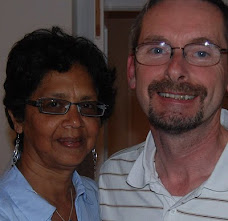It’s a kind of Alpha Marriage Course in reverse, or how not to communicate, to resolve conflict, to deal with in-laws, to protect your “marriage time” etc etc. The eponymous Raymond is a New Yorker of Italian descent, and a lot of the plot lines have to do with his wife Debra coming into this clan, and dealing with the overbearing mother-in-law and her pampered husband and all the rest.
Today’s episode “The Wallpaper” was a classic, when the in-laws, Frank and Marie accidentally reverse their car through Raymond and Debra’s living room wall. The row that ensues about who will pay, then the repair of the wall ... and then the wallpaper! It doesn’t happen to quite match the existing stripy pattern, a fault which sends Raymond off into a whole litany of his parents’ other faults that he never seems able to express properly. And there follows an excellent few moments, as Debra tries to resolve the tension, by helping Raymond open up with his parents about all the other issues he has with them
Debra : Come on, Raymond, why are you getting all worked about about the wallpaper. It’s not such a big deal.
Raymond : Yes, it is. It’s a big deal for me. It’s the last straw.
Debra : That’s good. So let’s talk about some of the other straws then...
A good lesson in active listening, and developing openness and sensitivity in our relationships.


































